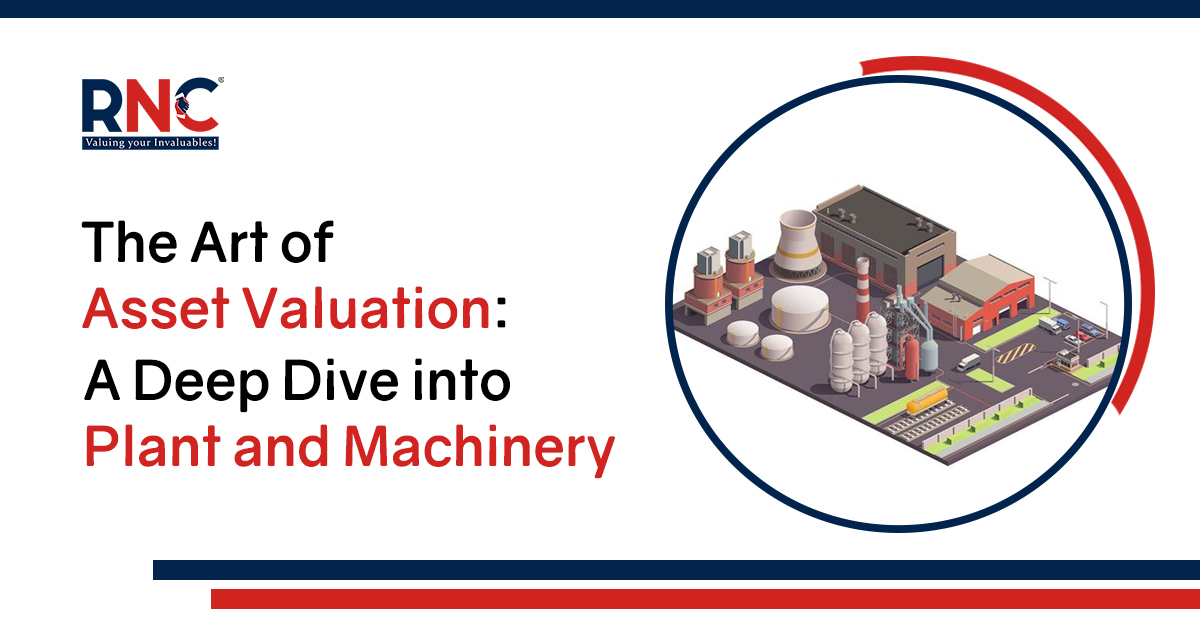
Plants and machinery are the backbone of many industries, facilitating production processes and driving operational efficiency. These assets encompass a wide array of equipment, ranging from manufacturing machinery to specialized tools essential for day-to-day operations. Valuing these assets accurately is imperative for financial reporting, investment decisions, and overall strategic planning.
The Key to Precision: Asset Valuation in Practice
- Since plants and machinery often serve as the foundation of manufacturing and production companies, a unique approach to value is required. Physical assets have intrinsic worth based on their utility, technological relevance, and state of preservation, unlike financial assets.
- Depreciation plays a significant role in figuring out how much equipment and plant is worth. Determining the current value of an object requires an understanding of the many types of depreciation, including falling balance and straight-line.
- Equipment and machinery can swiftly become outdated during a time of fast technical advancements. Asset valuation experts need to take new advancements and innovations into account when projecting the assets’ lifespan and future worth.
Read Similar Topic: Top 10 Facts You Should Know About Plant & Machinery Valuation
Market Conditions’ Significance:
The state of the market can have a big impact on plant and machinery value. Global events, industry trends, and changes in the economy can all have an impact on supply and demand, which in turn can change the value of these assets.
Asset valuation specialists frequently use comparable sales data and industry benchmarking to determine the true value of plant and machinery. Gain important insights into the current market worth by examining the prices at which comparable assets have been purchased or sold.
Asset Valuation Challenges:
Asset valuation is not a simple computation; it incorporates subjectivity and calls for industry-specific knowledge. To produce reliable evaluations, valuers need to have a thorough understanding of the complexities of equipment and technology.
One element of asset appraisal that cannot be compromised is adherence to regulatory requirements. To make sure the valuation process complies with legal and financial obligations, it is essential to stay up to date on changes in accounting standards and reporting requirements.
Conclusion:
In Conclusion, the art of asset valuation blends the accuracy of financial analysis with the advanced knowledge of industry dynamics, particularly with regard to plant and machinery. To determine the genuine value of these physical assets, valuation specialists must overcome obstacles brought on by depreciation, market circumstances, and technology breakthroughs. Understanding asset valuation becomes essential to preserving financial stability and making wise strategic choices as firms grow.
Read trending articles:
A Guide to Distressed Asset Investing and Corporate Restructuring
The Ins and Outs of Mergers and Acquisitions
FAQs:
1. What is plant and machinery valuation?
Plant and machinery valuation refers to the assessment of the current market value of industrial equipment and assets used in manufacturing, processing, or other operations.
2. Why is plant and machinery valuation important for businesses?
It helps in financial reporting, securing loans, mergers and acquisitions, insurance claims, and ensuring fair asset distribution during liquidation or restructuring.
3. Who can perform plant and machinery valuation in India?
Only IBBI-registered valuers are authorized to conduct plant and machinery valuations for regulatory and legal compliance in India.
4. What are the common methods used in plant and machinery valuation?
The most common methods include the Market Approach, Cost Approach, and Income Approach, depending on asset type and data availability.
5. How often should plant and machinery be revalued?
Ideally, businesses should revalue their plant and machinery every 3 to 5 years, or whenever there’s a major business event like mergers, audits, or expansions.
